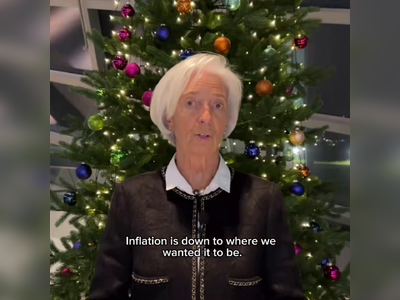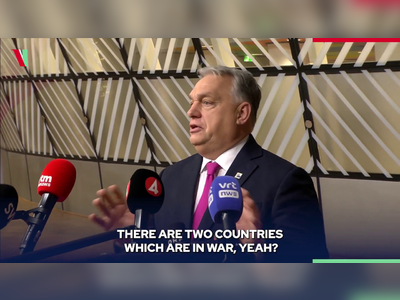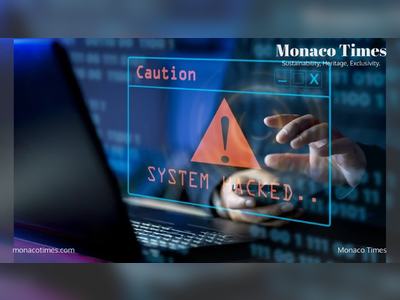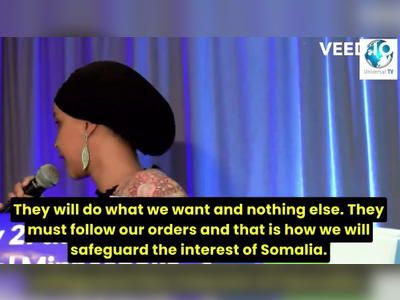
Monaco Enhances Financial Crime Combat Strategies Amid Increasing Global Scrutiny
Monaco strengthens its financial crime measures with a focus on compliance, regulatory frameworks, and community engagement as it aims for a clean slate with the FATF by 2026.
Monaco is intensifying efforts to combat money laundering and the financing of terrorism by developing its resources and workforce.
The government is also focusing on self-regulation and the involvement of the civil and economic sectors to meet new requirements.
One of the key objectives is to exit the 'grey list' of the Financial Action Task Force (FATF) by 2026, while establishing Monaco as one of the safest countries in terms of financial security.
In response to evolving financial crime methods, the Principality has appointed Bruno Dalles, a former director of the French financial intelligence unit Tracfin, as the director of Monaco's Financial Security Authority (AMSF) since March 5, 2025. Dalles' extensive experience includes serving as an anti-fraud judge and prosecutor, as well as leading the anti-money laundering unit in France, thereby positioning him as a pivotal figure in Monaco's renewed fight against financial crimes.
Dalles emphasizes that fighting money laundering requires a comprehensive approach involving all economic actors.
According to him, 'the banker, the real estate agent, the jeweler, as well as luxury vehicle and yacht dealers must know their clients, trace flows, and report any anomalies'.
This strategy is supported by legal obligations aligned with FATF recommendations to ensure constant monitoring of suspicious transactions.
The responsibility of monitoring extends beyond the financial sector, affecting charity and humanitarian organizations, particularly in the aftermath of Monaco's placement on the FATF's grey list in June 2024.
The regulations demand transparency from associations regarding their financial dealings, an initiative that has raised questions among many association leaders.
The aim is to prevent funds from being redirected towards terrorist activities, stressing the necessity of ensuring that humanitarian funds are utilized solely for their intended purposes.
Dalles highlights the heightened scrutiny on the gaming sector, particularly at the Casino de Monte-Carlo, where compliance with anti-financial crime standards has stirred concerns about its competitiveness against other establishments in the region.
Stéphane Valeri, President of the Société des Bains de Mer (SBM), has expressed that the regulatory burden could detract from the casino's appeal and undermine its functionality in a competitive environment.
While discussing the compliance measures, Valeri noted that systematic controls on all clients might overwhelm operations, 'If we were to conduct a fifteen-minute check at the entrance, the line would stretch to the center of Monaco'.
However, Dalles countered, asserting that the regulations in place are necessary and do not place the casino at a disadvantage compared to its French counterparts.
Amid these challenges, Monaco is investing in advanced technologies, such as the 'goAML' system developed by the United Nations, which enhances the detection of suspicious transactions through data analysis.
However, Dalles stresses the importance of human expertise in interpreting these data and acting accordingly.
The AMSF plans to increase its staff from about twenty agents to sixty by 2025, with a long-term goal of eighty, to bolster its capacity in tackling financial crimes effectively.
As the gaming sector navigates these enhanced regulations, emerging threats such as digital currency and cryptocurrencies present new challenges, requiring continuous adaptation in risk management strategies.
Dalles warns that criminals are constantly seeking ways to bypass established monitoring systems, necessitating the advancement of detection tools and ongoing collaboration between domestic institutions and international authorities.
Currently, the AMSF is preparing for an evaluation by the FATF, emphasizing the need for robust regulatory frameworks.
All stakeholders within Monaco's economy are expected to engage in this rigorous approach, fostering a culture of vigilance and collective responsibility against financial crime.
The government is also focusing on self-regulation and the involvement of the civil and economic sectors to meet new requirements.
One of the key objectives is to exit the 'grey list' of the Financial Action Task Force (FATF) by 2026, while establishing Monaco as one of the safest countries in terms of financial security.
In response to evolving financial crime methods, the Principality has appointed Bruno Dalles, a former director of the French financial intelligence unit Tracfin, as the director of Monaco's Financial Security Authority (AMSF) since March 5, 2025. Dalles' extensive experience includes serving as an anti-fraud judge and prosecutor, as well as leading the anti-money laundering unit in France, thereby positioning him as a pivotal figure in Monaco's renewed fight against financial crimes.
Dalles emphasizes that fighting money laundering requires a comprehensive approach involving all economic actors.
According to him, 'the banker, the real estate agent, the jeweler, as well as luxury vehicle and yacht dealers must know their clients, trace flows, and report any anomalies'.
This strategy is supported by legal obligations aligned with FATF recommendations to ensure constant monitoring of suspicious transactions.
The responsibility of monitoring extends beyond the financial sector, affecting charity and humanitarian organizations, particularly in the aftermath of Monaco's placement on the FATF's grey list in June 2024.
The regulations demand transparency from associations regarding their financial dealings, an initiative that has raised questions among many association leaders.
The aim is to prevent funds from being redirected towards terrorist activities, stressing the necessity of ensuring that humanitarian funds are utilized solely for their intended purposes.
Dalles highlights the heightened scrutiny on the gaming sector, particularly at the Casino de Monte-Carlo, where compliance with anti-financial crime standards has stirred concerns about its competitiveness against other establishments in the region.
Stéphane Valeri, President of the Société des Bains de Mer (SBM), has expressed that the regulatory burden could detract from the casino's appeal and undermine its functionality in a competitive environment.
While discussing the compliance measures, Valeri noted that systematic controls on all clients might overwhelm operations, 'If we were to conduct a fifteen-minute check at the entrance, the line would stretch to the center of Monaco'.
However, Dalles countered, asserting that the regulations in place are necessary and do not place the casino at a disadvantage compared to its French counterparts.
Amid these challenges, Monaco is investing in advanced technologies, such as the 'goAML' system developed by the United Nations, which enhances the detection of suspicious transactions through data analysis.
However, Dalles stresses the importance of human expertise in interpreting these data and acting accordingly.
The AMSF plans to increase its staff from about twenty agents to sixty by 2025, with a long-term goal of eighty, to bolster its capacity in tackling financial crimes effectively.
As the gaming sector navigates these enhanced regulations, emerging threats such as digital currency and cryptocurrencies present new challenges, requiring continuous adaptation in risk management strategies.
Dalles warns that criminals are constantly seeking ways to bypass established monitoring systems, necessitating the advancement of detection tools and ongoing collaboration between domestic institutions and international authorities.
Currently, the AMSF is preparing for an evaluation by the FATF, emphasizing the need for robust regulatory frameworks.
All stakeholders within Monaco's economy are expected to engage in this rigorous approach, fostering a culture of vigilance and collective responsibility against financial crime.











